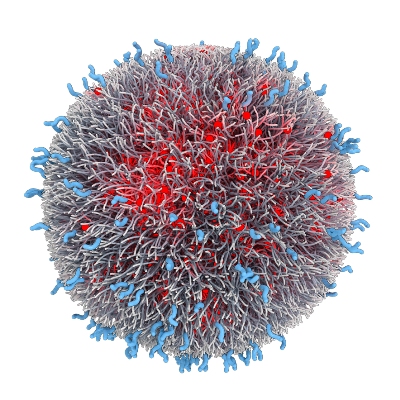The Kavli Foundation (Oxnard, California), that aims at the support of life sciences, has recently published a summary of a teleconference with four American pioneers in cancer nanotechnologies about the relevance of nanotechnology for the diagnosis and treatment of cancer.
The experts provide an insight into one of the most challenging application fields for different kinds of nanoparticles and nanodevices, about which new achievements are being reported every day.A recent blog article by the Scientific American comments on current developments that use nano-gold for cancer treatments.The key to the possible breakthrough is a multi-conjugation of nanoparticles.

If they can be loaded with different functional molecules at the same time, these nanoparticles could:
a. carry an anti-cancer drug and
b. bind specifically to cancer cells to release the drug locally.
This is the principle of nanoparticle-based drug targeting, which, however, has never been successfully applied to cancers in humans.
Now, first clinical trials with such an anti-cancer nanoparticle compound (after previous positive results in mice and monkeys) have been concluded and may be good news for mankind: in many cases, the nano-drug actually stopped the growth or even reduced the tumors.
